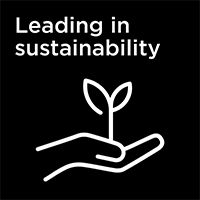Sustainability Shift – Episode 1: Living wages



Delivering on Clariant's purpose »Greater chemistry - between people and planet.«
This story is an example of how Clariant delivers on its purpose-led strategy.
Over 630 million working people across the world are unable to earn enough to lift themselves and their families out of poverty, according to the International Labour Organization. This income inequality is caused by several factors, including high inflation, crises such as COVID-19, and the eroding value of the minimum wage.
Therefore, how can the private sector, as a key player in the economy, influence wage levels and ensure fair compensation to their employees? In this episode, three experts highlight current trends, future opportunities, and evolving policies aimed at promoting ethical and sustainable approaches in the implementation of living wages. They also explore how companies and suppliers collaborate to ensure fair compensation across supply chains.
Experts in this episode
Daniel Vaughan-Whitehead
Priya Agrawal
Phyllis Foerster
Co-Founder and Chair
Fair Wage Network, a leading organization enabling companies and/or their suppliers dedicated to promoting fair wages and decent working conditions globally.
Senior Sustainability Manager
Unilever, a multinational consumer goods company
Manager Global Mobility Awards & Equal Pay
Clariant, a global specialty chemical company
Key terms
Living wage vs. minimum wage: A living wage is the income required to cover basic needs, such as housing, food, healthcare, and other essential needs in a particular area. A minimum wage is the legally mandated lowest hourly pay. A living wage aims for a better standard of living, while the minimum wage sets the baseline pay for workers.
International Monetary Fund (IMF): Major financial agency of the United Nations, and an international financial institution, headquartered in Washington, D.C., U.S., consisting of 190 countries.
The corporate sustainability due diligence (CSDDD): On June 2023, The European Parliament agreed on its position on the Directive on the CSDDD. The Directive requires in-scope companies to conduct due diligence on, and take responsibility for, human rights abuses and environmental harm throughout their global value chains. In the context of living wages, the CSDDD position recognizes the right to a living income, among other improvements.
Unilever’s Living Wage Promise: Building on its commitment to pay a living wage in its own business, in 2021 Unilever set a groundbreaking new goal, which is to ensure that everyone who directly provides goods and services to the company will earn at least a living wage of income by 2030.

Welcome to Sustainability Shift, the Clariant Podcast. Join us as we explore sustainability trends in the chemical industry, covering circularity, climate change, bioeconomy, zero waste and pollution, and social value creation. In a series of short episodes, industry experts will share their unique insights, challenges, and innovative solutions, providing a comprehensive understanding of how the chemical industry can play a role in creating Greater chemistry – between people and planet.

